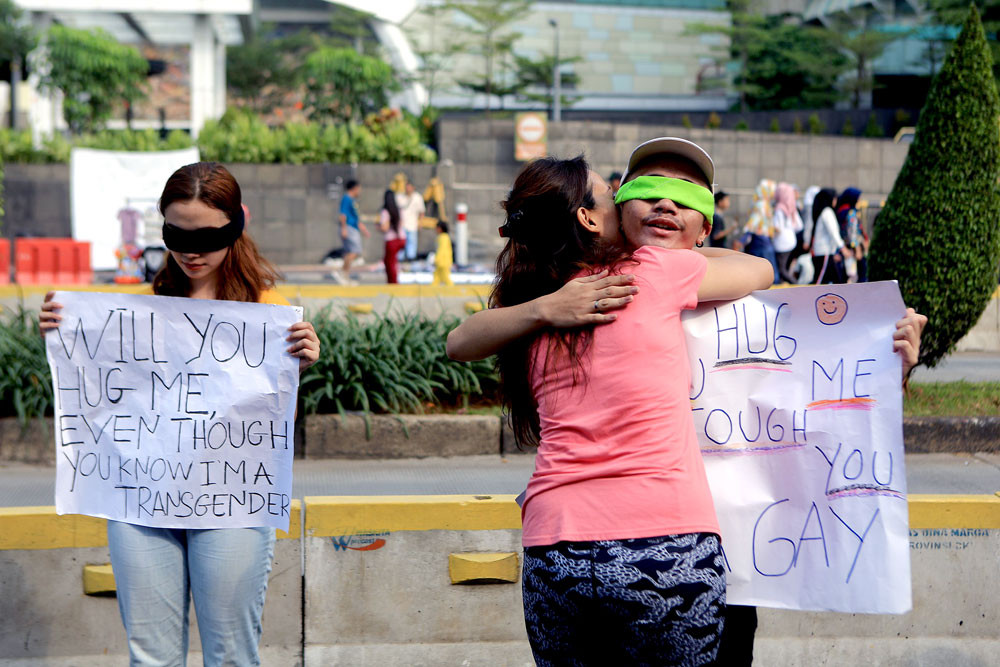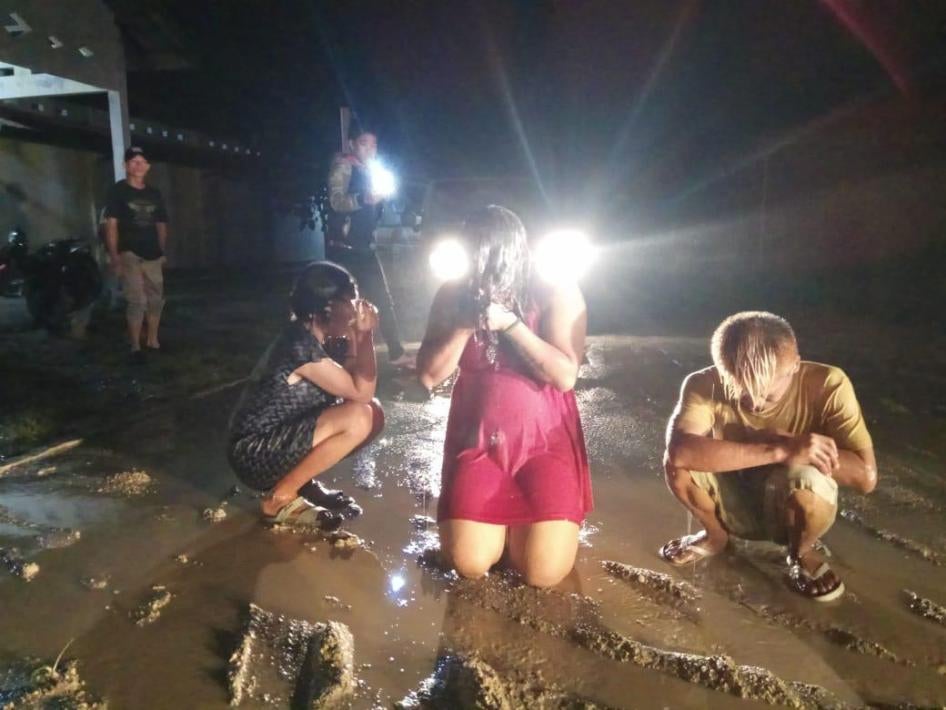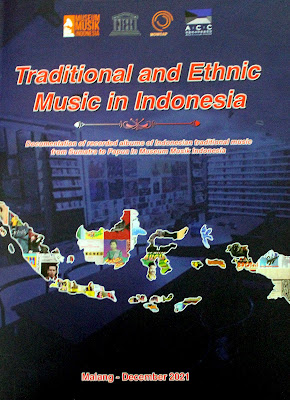Tolerance of intolerance threatens Indonesia’s image

Image credit: The Jakarta Post
The LGBTIQ+ community in Australia is cautiously expecting an acceleration of acceptance now the Albanese government has the steering wheel. But in the nation next door which boasts it runs with moderation, human rights is going in reverse.
There’s a powerful lobby group in Indonesia which gets its energy from pot-stirring. Driven by mainstream Islamic organisations it duplicates the tactics of Opposition Leader Peter Dutton when he was Home Affairs Minister warning of woke culture sending the nation in the wrong direction.
In English the adjective refers to an awareness of social inequality. There’s plenty of that in Indonesia where the rich make Croesus look like a pauper – and the under-class has more battlers across the archipelago than there are citizens in Australia.
In office Dutton exhorted the government to ‘weed out the people who have done the wrong thing’, a gardening ambition shared by Indonesian religious groups blaming Western liberals for infesting local values.
In his victory speech PM Anthony Albanese envisioned Australia as a country that ‘no matter where you live, who you worship, who you love or what your last name is, that places no restrictions on your journey in life.’
Ten days later at the start of Pride Month, the Majelis Ulama Indonesia (MUI) offered a different vision. The Islamic Scholars’ Council is demanding President Joko (Jokowi) Widodo and the Dewan Perwakilan Rakyat (Lower House) criminalise LGBT practices and purge the nation of deviancy.
Critics say this has more to do with hard liners trying to impose their version of morality, and enhance the religious parties’ credentials ahead of the 2024 election, widening the gap between traditionalists and the temporal.
So far the mainstream media in Indonesia has avoided alerting the populace to the fact that Australia’s new FM Penny Wong, who has been visiting Jakarta with Albanese, is a lesbian. Revelation could be a plus. The Malaysian-born Senator is also a practising Protestant, showing that faith and sexual preferences are not incompatible.
Although often tagged an Islamic republic because it has the world’s largest population of Muslims, Indonesia is a constitutionally secular state. Around ten per cent follow five other government-approved religions with Christians in the majority.
Bundling all ethnic and faith groups in the nation of 273 million together by linking bedroom behaviour with treachery, the MUI stamped gay practices as ‘a violation of the state ideology of Pancasila, the 1945 Constitution and the Marriage Law.’(Pancasila is the five-point philosophy underpinning the State. The final clause reads: ‘Social justice for all the people of Indonesia’.)
The national criminal code currently doesn’t forbid adult, non-commercial homosexual acts involving consenting adults. However the police regularly resort to public decency and community disturbance legislation to crack down on gatherings of gays.
In radical contrast to laid-back Bali familiar to holidaying Australians, the rarely visited province of Aceh on the northern tip of Sumatra applies local laws allowed by Jakarta to ban homosexuality. Offenders are lashed in public, a brutal and primitive punishment that also thrashes the world’s third largest democracy’s cultivated image as a progressive state.

Image credit HRW. Police challenge transgenders
MUI Proselytizing Commission Chairperson Ahmad Zubaidi announced that the clerics are demanding a speedy end to all activities and movements ‘carried out or supported by NGOs as well as international companies in Indonesia which are a manifestation of LGBT in any form or media.’ He didn’t name the foreign businesses allegedly pushing gay rights, but this campaign is more about fantasies than facts.
Like preachers in many faiths he presumed to know the mind of the Creator who apparently labels same-sex sexual relations as fahisyah, an Arabic term meaning lewdness and indecency.
Unfortunately for moderates the government-funded MUI can’t be flicked aside as a fringe group driven by extremists. The Council is Indonesia’s peak Muslim body and advisor to the government. Vice President Ma'ruf Amin was chair before entering politics.
The nation’s two major religious organisations dominate the MUI. They’re the grass-roots Nahdlatul Ulama which asserts it’s the world’s largest Islamic organisation with 90 million members, and the more elite Muhammadiyah with a reported 50 million. These figures aren’t audited, so ‘membership’ is more likely a synonym for ‘follower’.
Both promote themselves as supporting tolerance, though their official statements suggest otherwise. In 2005 the MUI issued a fatwa (edict) against pluralism, liberalism, and secularism. Nine years later it proclaimed homosexually as haram – forbidden under Islamic law.
The MUI is seeding fertile ground. A 2020 Pew Research
Institute survey
reported nine per cent of Indonesians agreed that homosexuality should be
accepted by society. Despite this dismal
statistic the gay lobby saw hope because the figure from seven years earlier
was just three per cent.
Menaces to gays in Indonesia have accelerated this century. A 2016 report by Human Rights Watch asserted that the minority had endured ‘sporadic hateful rhetoric and violent attacks over the preceding three decades:
‘That outpouring of intolerance has resulted in proposals of laws which pose a serious long-term threat to the rights and safety of LGBT Indonesians.’
It wasn’t always so. The Serat Centhini (Javanese teachings of life) compilation of ancient wisdoms includes tales of homosexuality and bisexuality. It has been described by Singapore gays as ‘Southeast Asia’s version of the famed Indian sex manual, the Kama Sutra’.
Last century, before the austere and prudish Wahhabism sect got a grip on Indonesia largely by funding hundreds of new mosques run by fundamentalists, waria (male to female transgender actors) regularly performed in public, along with transvestite beauty contests.
Lest Australians get too smug it’s worth remembering that despite the party’s name the previous government was not a showcase for liberalism. On The Conversation website, Monash Uni Human Rights Law Professor Paula Gerber wrote that ‘under the Morrison government, LGBTIQ+ people were subjected to a steady stream of attacks’.
Her list included ‘three separate attempts to pass the Religious Discrimination Bills, widely considered a sword with which to attack LGBTIQ+ people rather than a shield to protect people of faith from discrimination’ leading to serious mental health problems.
Although she thinks things will be better under Albanese, his government has not agreed to the Greens proposal for a Minister for Equalities, as in Britain where Liz Truss has the job, though the Tory is much distrusted by the gay community. In Victoria Health Minister Martin Foley also holds the portfolio of Equality.
Commenting after MUI’s latest assault on difference, former Jakarta Post editor Endy Bayuni alerted readers to his country’s ‘huge problem with increasing intolerance, racism and the way we treat minority groups.’
First published in Pearls & Irritations, 10 June 2022: https://johnmenadue.com/tolerance-of-intolerance-threatens-indonesias-image/







